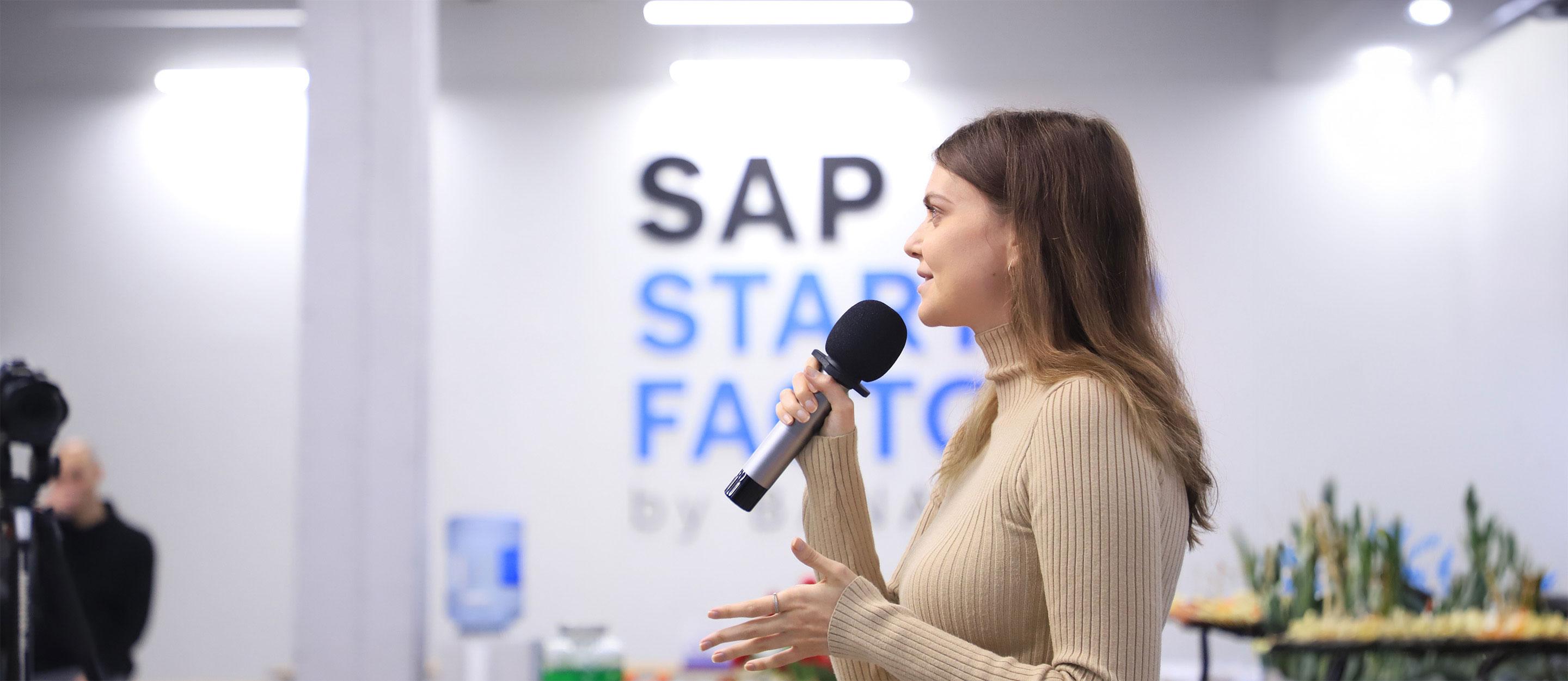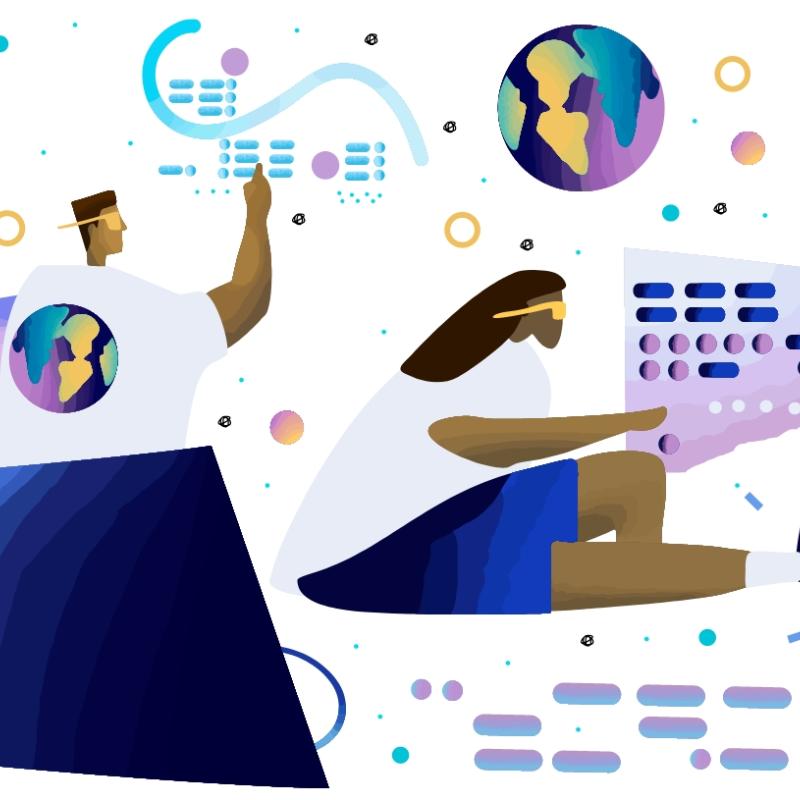In Armenia GIZ, SAP and the Business Angel Network Armenia (BANA) have jointly founded a start-up factory. It helps young firms to ‘get started in business’ and introduces them into the larger international market. This benefits not only the firms themselves, but also SAP, because the company obtains new software solutions and innovations. The local market is also stimulated; this could turn Armenia into a regional digital hub. This is good for all the stakeholders. GIZ has supported the local partner, in this case BANA, and thus boosted economic development.
 Yerevan Yerevanciner
Yerevan Yerevanciner
‘SAP and GIZ – a Dream Team’
Interview with Klaus Schimmer, Chief Innovation Architect Sustainability at SAP. He reports on a successful cooperative project in Armenia.
Mr Schimmer, how did the SAP Startup Factory and the cooperation with GIZ and Armenia come about?
I travelled to Armenia in 2020. Michael Strauß, Head of Innovation at KfW, and I wanted to find out about the TUMO Center in the capital Yerevan, which also offers free after-school media courses for teenagers in Berlin and Mannheim. I took the opportunity to explore the innovation scene in Yerevan: start-ups, investors, promotional programmes – over three days with a packed schedule. I was very impressed by the great talents and wonderful business ideas. Some very gifted people live in Armenia. People play chess on the streets, there are many engineers and mathematicians, and even nine-year-olds can program a robot.
What persuaded SAP to get involved here, and what benefit do you derive?
SAP has been running start-up programmes for many years now, principally – but not exclusively – in the scene’s hotspots: Berlin, Tel Aviv, Silicon Valley and so on. It’s logical that good start-ups gravitate to those places. Our idea was to supplement these programmes by offering support for the great talents in Armenia – and simultaneously to support and develop this region. It’s like any other aspect of life: give and take. If you strengthen a country’s drive for innovation, a robust economy will develop and new, larger markets will emerge. It’s a win-win-win situation, if you like.
What’s the advantage of a start-up factory and how exactly does it work?
Another common name for a start-up factory is ‘start-up accelerator’. This is possibly the best way of putting it. In the accelerator programme, mentors provide assistance on a range of topics: developing business ideas and marketing strategies, handling HR topics, and – most importantly – identifying customers and discussing the potential product with them. And all of this in only three to six months. That’s very intensive and the wheat is quickly separated from the chaff. SAP provides start-ups with the ideal support. Because in the best case SAP can open the doors to most major customers and any branch of industry. The crucial aspect for SAP and the start-up is that our cooperation develops into a form that is best expressed by the formula ‘1 + 1 = 3’.
What does that mean exactly?
If the start-up makes the SAP software more attractive, in return SAP will open the marketing channel to the customer. In this way, both SAP and the start-up have created more value overall. The start-ups can then present themselves to the world in the ‘SAP Store’, which is similar to Apple’s App Store. And ideally, our Marketing can sell SAP and the start-up as a combined package. This generates added value for the start-up, for SAP and for the final customer. It’s important to stress here that SAP doesn’t acquire shares in the start-up or lay claims to its intellectual property. Instead this is cooperation for everyone’s benefit.
What has been achieved with the SAP Startup Factory so far?
Conditions have been difficult over the last four years. COVID and the war in Ukraine exerted a not inconsiderable influence on our programmes. But that didn’t stop us from cooperating successfully. Now two batches of start-ups have gone through the process – groups of selected start-ups that were supervised for a certain period. Two nice examples of success stories are the start-ups RedRays and Prelaunch. RedRays specialises in SAP security, and Prelaunch assists customers in testing their products before taking them to market. That has already helped to avoid some bad investments.
Have you received any money from German taxpayers for this?
No. It was more important to us that the support should remain in the country and not go to SAP. BANA was a start-up accelerator that already existed in Armenia, which GIZ has helped to run the programmes. The things that SAP offers in full in its own start-up programmes were adopted here by BANA in cooperation with SAP. BANA covered the general topics like business planning and marketing. SAP was responsible for the software.
What is the project’s current status and where will it go from here?
At present we’re discussing how the programmes can be continued. I could imagine that the topics might be sustainability and artificial intelligence. I think these are currently the two most important topics of all.
Is Armenia an example that could be followed elsewhere?
Yes, and that was also an important point in the initial discussions with GIZ. We all agreed that part of the idea was to produce a kind of blueprint that could be applied in other countries in the region, and also in Asia or Africa, and scaled up. We’ve managed to do that.
Is this the first cooperative project between SAP and GIZ, or have there been others before?
SAP and GIZ have been working together successfully for many years. For SAP, as one of the few globally successful software companies headquartered in Germany, it’s extremely important not only to be a player on the large, established markets, but also to access those that are developing. And this is where SAP and GIZ make a dream team.
What do you hope to gain for your work and for digitalisation from a development organisation like GIZ?
GIZ knows most about the situation on the ground and is active at the right places. When the topic of digitalisation comes up, SAP is the perfect partner for developing successful strategies jointly with GIZ. This is what we’re doing right now, for example with GIZ and H2Uppp in Brazil on the subject of green hydrogen.
 privat
privat
Klaus Schimmer, Chief Innovation Architect Sustainability at SAP


